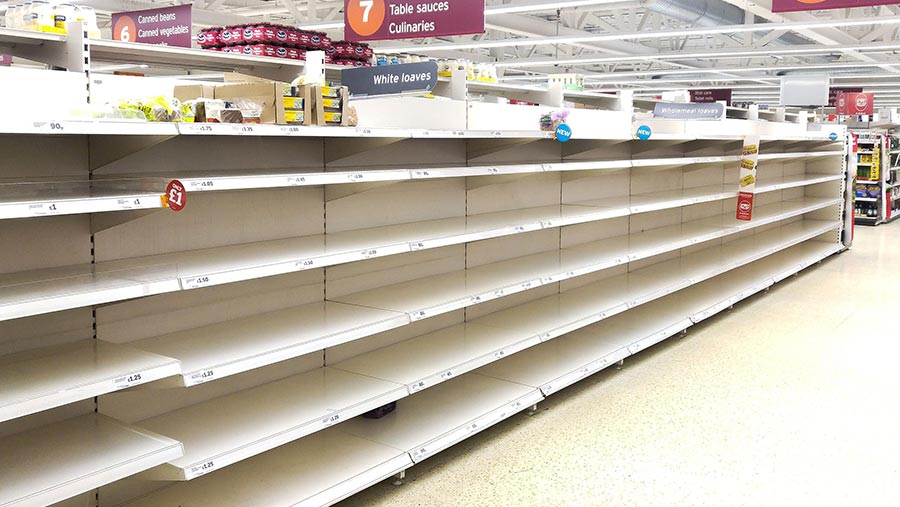Opinion: Don’t take food security for granted, Mr Gove
 © Joel Goodman /LNP/REX/Shutterstock
© Joel Goodman /LNP/REX/Shutterstock “You may not be interested in war, but war is interested in you” is an adage attributed to the Russian revolutionary Leon Trotsky. It suggests that unanticipated events have a tendency to overwhelm the best-laid plans. History provides plentiful support for the theory.
Defra secretary Michael Gove might demur at being associated with the communist Trotsky, but thrills to being considered a political revolutionary in his own way.
Free to pursue an independent domestic agricultural policy for the first time in 40 years, he continues to defy expectations for a Conservative minister in promoting environmentalism above food production – and the attendant strategic concept of food security.
See also: Key points from Gove’s “Health and Harmony” consultation
In this he seems on firm electoral ground. When I broach the issue of food security, I’m often met with patient expressions and then informed that such worries are antiquated; that “the market” will always provide; that our current plentiful existence is eternal. Trotsky might have suggested that the only constant in history is inconstancy.
Why does the UK retain a nuclear deterrent? Because it provides a comparatively very cheap insurance policy against foreign aggression at £2bn/year.
The same is true of domestic agriculture. Governments have always supported food production on national security grounds. In the UK, £3bn/year is earmarked for this purpose – the ability to feed your populace come what may; the supreme “public good”.
At a recent Defra/NFU conference, Mr Gove suggested to me that the days of submarines cutting our supply lines are long gone. I hope so. But today, mere bellicose rhetoric would suffice to keep commercial shipping firmly in port.
Conflict is the worst-case scenario. But trade disputes, global political unrest and climate change also have the potential to undermine an import-dependent food policy.
Defra farm minister George Eustice recently replied to my question on this issue by saying that we will continue to rely on imports from “stable” countries.
But the current retaliatory trade war between the US and various trading partners around the world – including the EU and UK – demonstrates that even our closest allies cannot be trusted to uphold the established norms of free market enterprise.
And what of climate change? As farmers, we’re fully aware of the challenges of increasingly extreme weather. Global supply chains are delicately balanced; even “stable” trading partners cannot supply food they haven’t been able to grow – as we saw on a small scale with Spanish lettuce in 2017.
Also, note the way the “investment nations”, such as China, are taking to physically purchase foreign farmland to guarantee their own supplies – as the UK potentially looks to increasingly source its requirements from imports. Today we produce only 60% of our needs, down from 78% in 1984.
Government trusts generals to inform them on matters of defence; it must trust farmers to inform them on food. Once land is removed from production, and growers drift from the industry, it would take years to recover. We would have no response to a sudden shock.
An alternative interpretation of Trotsky’s adage replaces the word “war” with “the truth”. This suggests that facts, unpalatable as they may be, are immutable and will not be ignored in the long run – even for political convenience.
Mr Gove; you may not be interested in food security, but food security is interested in you.
